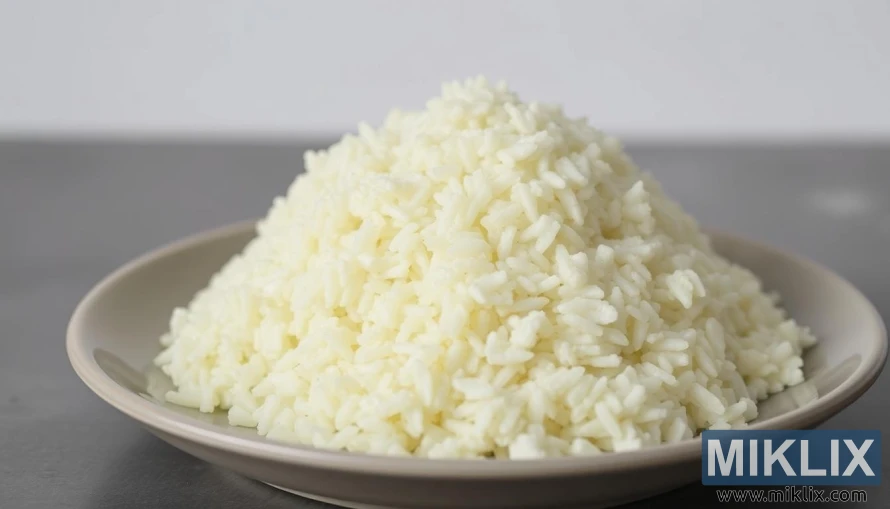Low-Carb Hero: The Surprising Benefits of Cauliflower
Published: March 30, 2025 at 8:23:25 PM UTC
Cauliflower is a versatile vegetable that offers many health benefits. It is full of vitamins, minerals, and phytochemicals. These nutrients help keep you healthy and may even prevent diseases like heart disease and cancer. This article will explore how cauliflower can improve your diet. It shows how this vegetable is key to a balanced diet.
Key Takeaways
- Cauliflower is rich in essential vitamins and minerals.
- It contains high levels of fiber, promoting digestion and health.
- Antioxidant properties may help in preventing various diseases.
- This vegetable supports weight management due to its low calorie count.
- Cauliflower contributes to overall heart health.
- Various cooking methods enhance its versatility in meals.
Introduction to Cauliflower
Cauliflower, known scientifically as Brassica oleracea, belongs to the cruciferous vegetable family. It's famous for its tightly packed heads or florets, often white. But, there's more to cauliflower than just white; you can find it in shades like orange, purple, and green too.
Each color has its own unique look and nutritional benefits. This variety makes cauliflower appealing to health lovers and food adventurers alike.
So, what is cauliflower? It's not just about looks; it has a mild, slightly sweet taste. This makes it great for many recipes. You can enjoy it raw for a crunchy texture or cooked for a softer taste.
Cauliflower is perfect in stir-fries, soups, and even as a rice or pizza crust substitute. This introduction to cauliflower shows how versatile it is, making it a top pick for any kitchen.
Nutritional Profile of Cauliflower
Cauliflower is a low-calorie veggie full of good stuff. It has only 27 calories in a one-cup serving. This makes it a great choice for those watching their calories.
It's also packed with vitamins. Vitamin C is a big deal, making up about 57% of your daily needs. It helps keep your immune system strong. Vitamin K is also present, at about 14% of your daily value, which is good for your bones and blood.
Other important vitamins in cauliflower include B6 and folate. These vitamins are key for your body's functions. Cauliflower also has potassium and magnesium, important for your body's health.
But that's not all. Cauliflower is also high in dietary fiber. This helps with digestion and keeps you hydrated because of its water content.
High Fiber Content of Cauliflower
Cauliflower is a low-calorie veggie full of nutrients. A one-cup serving of raw cauliflower weighs about 107 grams. It has around 2.1 grams of dietary fiber, which is about 8% of the daily value for fiber on a 2,000-calorie diet. This fiber is key for good digestive health.
Dietary fiber helps keep bowel movements regular and supports good gut bacteria. A healthy gut is important for our overall health. It boosts our immune system and lowers the risk of diseases like heart disease and some cancers. Fiber also helps control blood sugar and cholesterol, aiding in weight management by making us feel full.
Adding cauliflower to your meals is a tasty way to get more fiber. You can eat it raw in salads or cooked in many dishes. It's a great way to make your diet richer in fiber.
Antioxidant Properties of Cauliflower
Cauliflower is packed with antioxidants, which are key to good health. It contains glucosinolates and isothiocyanates. These help protect cells from damage by free radicals.
Free radicals can harm cells, but antioxidants like those in cauliflower stop them. This helps reduce inflammation and lowers the risk of diseases like cancer and heart disease.
Cauliflower also has a lot of vitamin C. Vitamin C boosts the immune system and is also a powerful antioxidant. Knowing how antioxidants work shows their importance for health.
Eating cauliflower can make your diet richer in antioxidants. This is good for your overall health and well-being.
Weight Management and Cauliflower
Cauliflower is a low-calorie superstar, with just 27 calories per cup. This makes it perfect for those looking to lose weight. Its high fiber and water content help you feel full, which can lead to eating less.
For anyone eating healthy, cauliflower is a great choice. It's a low-calorie swap for foods like rice or mashed potatoes. It's great for diets that are low in carbs or ketogenic, helping you eat less without sacrificing taste.
Choline Content in Cauliflower
Cauliflower is a great source of choline, with about 44 milligrams per cup. Choline is key for many body functions, showing its importance for health. It keeps cell membranes strong, which is vital for cell function.
Choline also supports brain health. It helps make neurotransmitters, which are important for brain and nervous system communication. This shows how choline benefits, like improving brain function and memory.
Many people don't get enough choline from their food, leading to health issues. Adding cauliflower to meals can help meet choline needs. Knowing how important choline is can motivate people to eat more choline-rich foods like cauliflower.
Health Benefits of Sulforaphane
Sulforaphane in cauliflower is a powerful compound with many health benefits. It's known for its role in cancer prevention, which has caught the attention of researchers and health enthusiasts. Studies show that sulforaphane can slow down cancer cell growth and boost the body's detoxification.
But sulforaphane's benefits don't stop there. It also supports heart health by possibly managing blood pressure. This makes it a promising addition to your diet for overall health.
Cauliflower as a Low-Carb Substitute
Cauliflower is a great low-carb substitute in many recipes. It has low carbs, making it perfect for replacing grains and legumes. It's a top pick for those looking for low-carb swaps.
One of its most popular uses is as a cauliflower rice alternative. This replaces traditional rice, giving a similar texture and taste.
Cooking with cauliflower opens up creative meal options. These meals don't give up flavor or enjoyment, even with fewer carbs. Here are a few examples:
- Cauliflower rice for stir-fries and bowls
- Cauliflower pizza crust as a gluten-free option
- Mashed cauliflower to replace mashed potatoes
These dishes offer the taste and satisfaction of their high-carb versions. They're ideal for those following a low-carb diet.
Versatility of Cauliflower in Cooking
Cooking with cauliflower is a fun way to explore its many uses in the kitchen. It has a mild taste that works well in many dishes. You can enjoy it raw in salads for a crunchy bite or cook it in different ways.
Here are some popular ways to prepare cauliflower:
- Steamed as a healthy side dish
- Roasted until golden for depth of flavor
- Blended into creamy soups for a comforting meal
- Transformed into cauli-tots, a playful snack
- Incorporated into curries for a hearty main dish
- Even used in desserts, showing its adaptability
These cauliflower recipes show its flexibility and how it can make meals healthier. With so many ways to cook it, you can easily add cauliflower to your meals. This makes cooking with cauliflower a fun and creative process.
Hydration Benefits of Cauliflower
Cauliflower is packed with water, about 92% of it. This makes it a great choice for boosting your fluid intake. Eating water-rich foods like cauliflower helps keep your body hydrated. This is key for digestion and keeping your blood flowing well.
Being hydrated does more than just quench your thirst. It also boosts your energy and sharpens your mind. Adding cauliflower to your diet is a tasty way to stay hydrated. You can enjoy it raw, steamed, or blended, making it a healthy snack.
Cauliflower and Heart Health
Cauliflower is great for your heart, making it a top pick for heart health. It's packed with fiber and sulforaphane. These help keep your heart working well and prevent diseases.
Fiber is key in controlling cholesterol levels. It helps your body absorb less cholesterol, keeping your levels healthy. Sulforaphane also fights inflammation and keeps blood vessels strong.
Eating cauliflower regularly can lower your risk of heart disease. Heart disease is a big killer. Adding cauliflower to your meals can boost your heart health and taste buds.
Potential Anti-Cancer Effects of Cauliflower
Cauliflower is getting more attention for its role in fighting cancer. It's full of compounds like glucosinolates and sulforaphane. These are known for their ability to stop tumors and help remove harmful substances from the body.
Eating cauliflower and other cruciferous veggies regularly can lower cancer risk. This shows how important it is to add these foods to our meals. By doing so, we can help keep our bodies healthy and strong.
In short, cauliflower's anti-cancer properties make it a key food in the fight against cancer. Adding it to our diet can help protect us from different types of cancer. Enjoying cauliflower can be a tasty way to support our health.
How Cauliflower Supports Brain Health
Cauliflower is great for your brain because it's full of choline. Choline helps keep cell membranes strong and working right. It's key for sending signals and moving lipids, which helps your brain work well.
Studies show that enough choline can boost memory and mood. This is important for keeping your brain healthy for a long time.
When you're pregnant or just after giving birth, choline is extra important. It helps your baby's brain grow and develop. It even changes the baby's DNA, which is important for brain health later on.
For grown-ups, getting enough choline is also key for a healthy brain. Eating foods high in choline, like cauliflower, can help fight off brain problems as you age. Adding cauliflower to your meals is a good way to support your brain health.
Incorporating Cauliflower into Your Diet
Adding cauliflower to your meals is simple and fun. It's great in many ways, like raw, steamed, or roasted. You can also blend it into smoothies or soups for extra nutrition.
Try new things with cauliflower in your kitchen. You can make cauliflower bowls, a low-carb option for many meals. Or, use a cauliflower crust for a healthier pizza. For a cozy side, try creamy cauliflower mash instead of mashed potatoes.
There are lots of tasty cauliflower recipes out there. By adding this veggie to your meals, you can make healthier choices. Enjoy the benefits of cauliflower while making delicious food that you love.
Conclusion
Cauliflower is a powerful vegetable that's good for you. It's full of fiber and antioxidants, which are great for your health. It's also low in calories and carbs, perfect for those watching their weight.
Adding cauliflower to your diet can help fight diseases and keep your heart and brain healthy. You can eat it raw, roasted, or in recipes. It's easy to add to your meals and makes them more interesting.
Using cauliflower in your cooking can make your meals healthier and tastier. It's a great way to improve your diet and enjoy your food more. Try adding cauliflower to your meals to support a healthier lifestyle.
Nutrition Disclaimer
This page contains information about the nutritional properties of one or more food items or supplements. Such properties may vary worldwide depending on harvest season, soil conditions, animal welfare conditions, other local conditions, etc. Always make sure to check your local sources for specific and up-to-date information relevant to your area. Many countries have official dietary guidelines that should take precedence over anything you read here. You should never disregard professional advice because of something you read on this website.
Furthermore, the information presented on this page is for informational purposes only. While the author has put reasonable effort into verifying the validity of the information and researching the topics covered here, he or she is possibly not a trained professional with a formal education on the subject matter. Always consult with your physician or a professional dietician before making significant changes to your diet or if you have any related concerns.
Medical Disclaimer
All content on this website is for informational purposes only and is not intended to be a substitute for professional advice, medical diagnosis, or treatment. None of the information here should be considered medical advice. You are responsible for your own medical care, treatment, and decisions. Always seek the advice of your physician or another qualified healthcare provider with any questions you may have regarding a medical condition or concerns about one. Never disregard professional medical advice or delay seeking it because of something you have read on this website.



